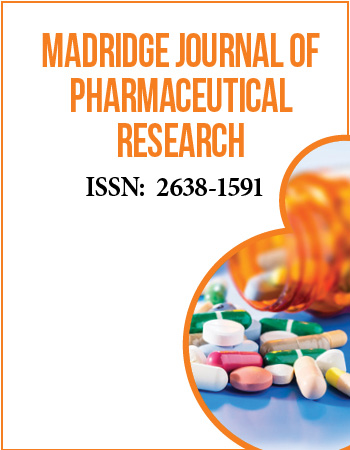International Conference on Medicinal and Pharmaceutical Chemistry
December 5-7, 2016 | Dubai, UAE
Discovery of small-molecule as mu opioid antagonist
1School of Pharmacy, The University of Mississippi, University, USA
2Temple University, USA
3Tafila Technical University, Jordan
With the increase in the use and abuse of opioid drugs have come an increase in the number of deaths from opioid drug overdose, including a 91% US-increase related with opioid analgesics during the period between 1999 to 2002. Opioid abuse also contributes to increased healthcare costs, which is estimated at $300 billion/year according to the White House budget office. It has been recognized that the analgesic effects and the unpleasant side effects (such as addiction, respiratory depression, and tolerance) of most therapeutic opioids are primarily due to their interaction with the mu opioid receptor (MOR). In order to counteract these negative effects, studies are underway to develop MOR antagonists. In addition to treating opioid dependence, MOR antagonists are also used in the treatment of alcoholism, and have the potential for treating a variety of other conditions such as psychosis, obesity, and Parkinsonʼs disease. Until recently, successful receptor-based drug design was extremely difficult, because the interaction between opioid drugs and the receptors were not fully understood at the molecular level. However, since reporting the crystal structure of the opioid receptors, researchers have been able to take advantage of this knowledge to discover new compounds, which target these receptors and may be useful for pharmacological and medical purposes. The current study aims to design, synthesize and biologically evaluate potential mu receptor antagonists. The preliminary virtual high throughput screening (HTS) has led to the identification of one novel small-molecule mu antagonist. Acknowledgement: NIH-NIGMS Center of Research Excellence in Natural Product Neuroscience, grant number P20 GM104932.
Biography:
Dr. Amer Tarawneh. is Assistant Professor in medicinal chemistry at the Department of Chemistry at Tafila Technical University. He was a postdoctoral research fellow in Purdue University. Dr. Amer Tarawneh earned his doctoral degree in pharmaceutical science/ medicinal Chemistry at University of Mississippi, USA the direction of Dr. Stephen J. He obtained a Master of Science degree and a Bachelor of Chemistry degree from Mutah University in Jordan, Jordan. Dr. Amer is the authored/co-authored of over 18-refereed scientific articles as of May 2016. His research interests include drug Design and development, virtual screening for biological active compounds and natural products chemistry.


